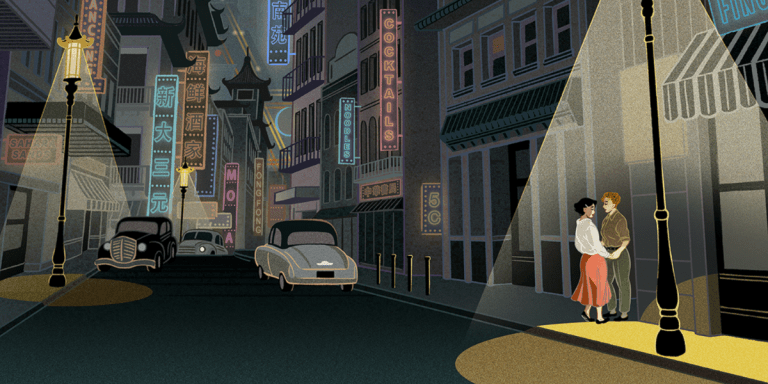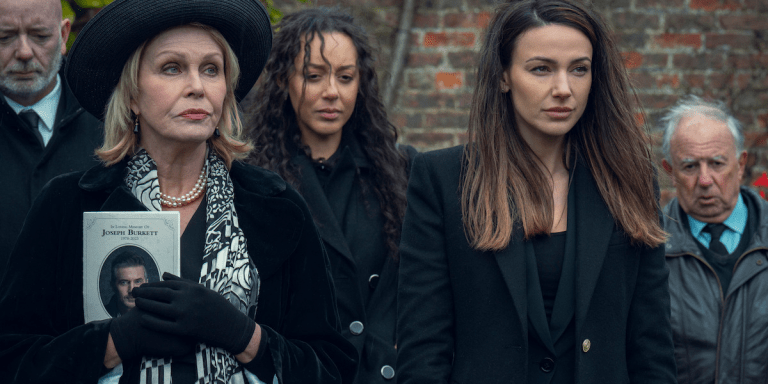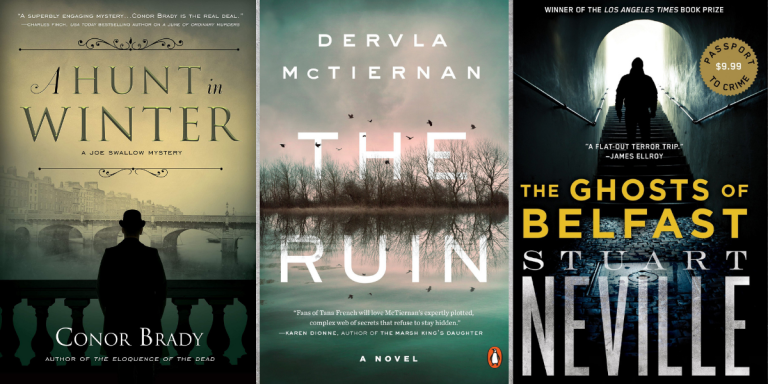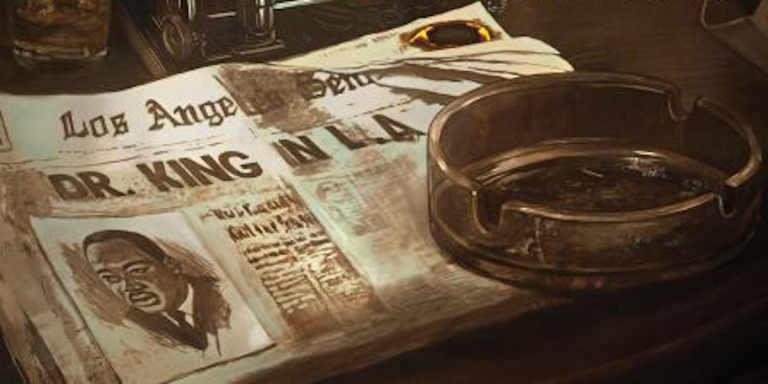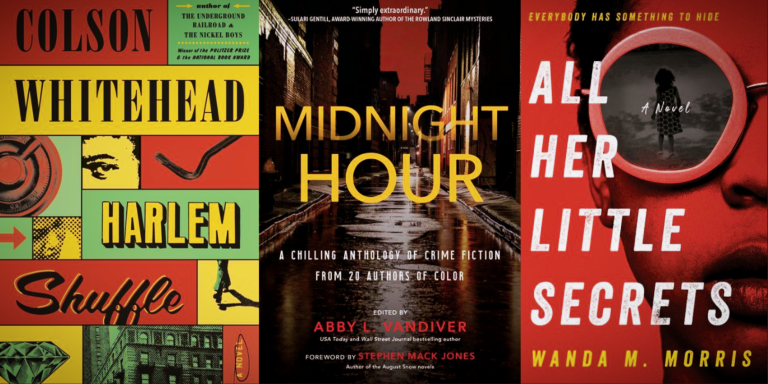Read the Excerpt: Mary by Nat Cassidy
 PART ONE
PART ONE
THE LIFE BEFORE
APRIL 20, 1969
There’s a corpse in the bathtub.
She’s leaning against the wall, legs dangling over the lip of the tub. Dumped there, looks like.
She’s been stripped nude, save for the pillowcase pulled over her head. A clean, almost glaringly white pillowcase, featureless other than the huge stain of dark, sopping blood in the center. The topography of what was once a face presses out of the middle of the dark, wet stain. There’s so much blood the fabric clings to what’s underneath like a second skin, leaving hollows where the eyes, the still-screaming mouth had been.
More blood trails out from under the pillowcase in thick rivulets, down her neck, across her chest, clotting along the basin of the tub. Stains smear the areas around the body like an aura; bloody hands having done bloody work.
Other than that, Sheriff Brannigan thinks, it’s a pretty nice bathroom. At least compared to any bathroom he’s ever had.
His policeman eyes pick up plenty of details that tell him a more nuanced story. The actual-gold soap dish by the sink is speckled brown with tarnish and scum. The cream-colored hand towels have a weather-beaten thinness to them. The room is like a despised relative in some opulent family: richer than sin, but not a lot of love to show for it. Exactly what you might expect for the fourth guest bathroom on the third floor of this dizzyingly large mansion.
Other than that, Mrs. Lincoln, how was the play?… The joke passes through his mind like a bit of trash blowing down a deserted street.
He’s a thin man in his fifties. His sheriffs badge gleams like the edges of the dead woman’s pillowcase: too bright, too clean for this room. His face is slimy with sweat. He’s not having a good day.
The world has gone unnaturally quiet. Moments ago, it was chaos, but now . . . only the sounds of his pulse, his breath, coming in, going out, in unconscious, tidal sway. It was as if when he opened the door to this room—there’s a corpse in the bathtub—he’d entered a bubble and now only he and this dead woman and this inauspicious bathroom existed.
Sheriff Brannigan stares at the woman, leans toward her. He’s gripped by a sudden, strong urge to reach out, yank that pillowcase off her head, get that awful unveiling over with and confront her face-to-almost-face. He doesn’t. He knows the horrors waiting underneath that fabric all too well. He’s seen it dozens of times on dozens of morgue slabs and in dozens of crimes scenes already. Plus, his arms are beginning to feel strangely heavy and useless. So he settles for just . . . staring.
The dead woman doesn’t appear to mind. Hopefully, she’s past caring about such things now.
He stays this way for a long time, hands on his upper thighs, bent at the waist, regarding the body as if it were a work of inscrutable art on display—maybe it is—when a harried voice shouts from down the hallway.
“We found him! Sheriff!”
Brannigan doesn’t jump. He doesn’t twitch. Going by his body language, he doesn’t appear to register a thing. The bubble around him doesn’t burst so much as it begins to dissolve.
Bit by bit, reality reestablishes itself: the commotion downstairs, men shouting and barking orders, and worst of all, the screaming. Not a scream of pain or anguish—it’s the scream of madness, an insane child realizing his favorite toy has broken.
And underneath all that, the bubbly counterpoint of a radio blaring pop music.
“We found him!” the voice yells again, louder, closer. One of his deputies, running into the room, panting either from excitement or exertion. “We—” The deputy breaks off, seeing the scene in the bathroom: the dead woman, the sheriff, bent as if ready to whisper something only for her benefit.
“Sheriff ? . . . You okay?”
Brannigan doesn’t turn around; something is squirming under the red center of the pillowcase and it’s pulled his attention. He knows what it is, even before it emerges from the bottom of the pillowcase: an ant, curious and probing. This house appears to be full of them, and why not? Good eats aplenty around here. Ants were a common enough sight at scenes like this (more common outside, but there was something appropriate about this mansion, for all its façade of respectability, being so infested). They were drawn to the blood, and they could interfere with your forensics, but what could you do? If your murder scene had an ant problem, you might as well try to shoo sand away from the beach. Or maybe the sheriff is simply as past caring about such things as the dead woman is.
“Sheriff Brannigan?” his deputy repeats, concerned.
“How many does she make?” the sheriff asks at last, not taking his eyes off the shifting, pulsing stain. A second ant soon follows the path of the first, tracking along a rivulet of blood. The squirming underneath the fabric continues; there are more. So many more. “Is she the ninth? Tenth?”
“I-I don’t know, Sheriff. But, but we found him! The guy, the, the—well, we think the guy. Come on!” The deputy makes a futile gesture toward the doorway.
This woman is actually the seventh body they’ve found in the mansion so far—six of them women, all stripped nude, all with something like a pillowcase pulled over their mutilated faces, matching the modus mortis of the dozens of other women they’ve been finding around town for the past several years, all unidentifiable. The seventh body was an exception on both counts: he was male and he was all-too- easily ID’d, despite the visual handicap of him missing most of his head.
Mayor Victor Cross. The man whose third-floor guest bathroom they were currently standing in.
Another high-pitched, manic shriek floats into the bathroom.
The guy
The guy who did
A quick mental flash—the headless mayor on the bedroom floor, the mayor they had just been meeting with before the screams began and the train of the world derailed, as well as the hastily written note that same mayor left on the floor by his body—and just like that, the sheriff remembers who he is and what he’s here to do. He shakes his head, snapping it back and forth. It helps a little, although his arms still feel dipped in concrete. The left one in particular irregularly pulses with dark, painful alarm.
We found the guy who
“Right.” The sheriff clears his throat. He sees an ant on the floor and stomps on it. “Thank Christ. Where is he?”
The deputy makes a face, half-grimace, half-plea.
“He’s in the walls.”
Another high, wail of insanity curls through the massive house.
The sheriff and his deputy tear out of the bathroom and throw themselves down the stairs. They pass paintings and lamps. Huge framed mirrors. They pass the giant master bedroom on the second floor, where the headless body of Mayor Cross lies next to a shotgun and a piece of paper doused in blood and gray matter. The sheriff doesn’t see more than the man’s legs through the doorway, but that note is emblazoned onto his mind, indelibly, as if written by flashbulb:
“i knew”
The sheriff ’s lips curl in a grimace as they pass. He hates this place. Not just this mansion of horrors but this whole damn town. One of several tiny communities under his county purview, coming with the job the way unseemly in-laws come with a marriage. He knows some of the town’s history—enough to have a bad taste in his mouth anytime he’s forced to visit—so the way this day has developed has of course been a shock, but not necessarily a surprise. There’s always been an evil energy in the air here. A poison. Maybe that’s why it’s so hard to breathe right now.
Brannigan and his deputy have almost made their way to the first-floor landing when the sheriff feels his heart lock in his chest. His lungs fill with sand. The pain in his arm grows new rows of teeth and bites down hard.
He wheezes: “Wait, wait. ““I gotta . . . I gotta sit down for a sec.”
He puts a sweaty hand on the immaculate wallpaper, slowly eases his way down the steps, and sits on the bottom stairs.
“Do you need—?” his deputy starts to ask.
The sheriff angrily waves him away. Go do your job, the wave says. I’ll be okay, his expression tries—fails—to add.
The deputy obeys, and Brannigan watches him continue on past the stairs and through a doorway. “I think something’s wrong with Sheriff Brannigan!” the deputy is calling. There are a lot of men around—the whole countywide ad hoc task force Brannigan had assembled over the past few months showed up almost instantly when the call went out—but most of them are too focused on the task at hand to hear the deputy.
One man has come out to stare for a moment, though.
He’s handsome and young, perhaps in his early forties, with ginger-red hair. If Brannigan is remembering correctly through the painfog, this man is actually a local here. That they’d received a few volunteers from the town itself should’ve perhaps softened Brannigan’s opinion of the place . . . except all the men give him the same, uneasy feeling. In fact, looking at this deputy now (His name also starts with a B, doesn’t it? Burke or Burman or something.) Brannigan feels his gorge rise in disgust. Or maybe he’s about to puke from the pain. He’s not even sure; his body begins to feel like someone else’s.
Another shriek peals through the building. The red-haired deputy snaps to attention, but instead of running to the direction of the noise, he bolts up the stairs, pushing past the sheriff, like a man who just realized he’d left the gas on.
For the moment, the sheriff is alone again.
An ax smashes through wood in another room. On this side of the wall, a small shelf of porcelain figurines vibrates with the impact. The figurines scatter from their perch, several shattering on the floor.
The sheriff watches this, feeling oddly light and detached. Once, when he was a boy, he’d visited California with his family, and there had been an earthquake. The moment before the tremors felt similar to this: a tingling, stomach-floating, physical premonition. His arm throbs, at once dull and sharp, razor blades wrapped in wool.
California was a fun trip. Janie was alive then. Before her husband drove the two of them off the highway into that ravine. We’d had no idea what was coming for her, did we?
Why am I thinking about that?
A strange voice he doesn’t quite recognize answers back: Because we are only our memories, Owen.
Sheriff Owen Brannigan hears the sound of men—his men—pushing themselves into the hole in the wall. The radio must be inside the walls, because as soon as they break through, the blaring music gets even louder. Brannigan has never liked that rock and roll crap. It’s dissonant and charmless and too juvenile by half. But he recognizes the next song as it starts.
He doesn’t remember who sings it—another dopey group with a dopey, interchangeable name—but he knows his wife, Bess, loves it. She’s actually never told him that, but he can tell by the way she hums it whenever she busies herself with various tasks, by the way her head bobs and an unconscious smile curls her lips whenever the song plays over the radio. She probably knows if she confessed how much she enjoys this song, he might shake his head and look at her with his own smirk that teases, “You’re a silly woman, but I adore you.” He doesn’t need her to say it. They’ve been married for twenty-two years, and he loves watching her and so
I knew
The sheriff ’s stomach pushes out of his torso and floats toward the ceiling. Liquid concrete pours into his limbs. Darkness encroaches the edges of his vision, a swarm of black ants swallowing up the world. And the song continues, not caring.
I knew
His men scream. The madman screams. Or maybe that’s the punchy sound of brass accompanying the rock singer as he croons, “I love you more today than yesterday. But not as much as tomorrow. Every day’s a new day of loving you.”
A cluster of men round the corner. They’re all blurs. They make their way to the sheriff, but as they approach, they don’t become any clearer. When he’d woken up this morning, could he have ever imagined?
I knew
Right before his sister Janie died, when her drunk of a husband randomly steered them into nothingness, could she have imagined?
I knew
Hands are on him now. The skin wrapped around his skeleton feels clammy. Is he sweating? Is he crawling with insects? He listens to the music. To the screams. To the distant volley of gunfire inside the wall. The screams stop. Yet he can still hear them.
Tears spill out of the sides of his eyes as he’s laid on his back. He’s dimly aware that his shirt is being ripped open. And he thinks, Every day’s a new day.
But I can still hear the screaming.
I can still hear the screaming. (I knew.) This will never (I knew) end—And he’s right.
Nothing ever ends. Every day’s a new day.
A few miles away, precisely as the sounds of gunshots finish echoing through the crawl space between the walls of the unfathomably large mansion, a pregnant woman in more modest accommodations suddenly screams with labor pains.
Her baby, a girl, is early but not alarmingly so. The doctor later jokes, clapping the woman’s nervous husband on the back, “I guess she was just ready to come out.”
APRIL 4, 1975
Bettina Perlmutter is hoping for a slow day. She pulls into her parking spot at the Yavapai County Desert Museum, the only car in the lot, and closes her eyes for a quick early-morning prayer.
Please, Jesus, let today be quiet.
She can still hear yesterday’s screams trapped in her head like ghosts in a haunted house. The museum had hosted a school field trip. An amorphous mass of more than fifteen six-year-olds roiling and shrieking down her hallways.
Please. Jesus. I’m begging you. Let no one come.
There are no other events on the calendar; today should be slow. It’s not like the museum does a lot of business anyway. Why would it? A humble little collection of desert plants and desert animals, tucked in between a few small desert towns peppered around a desert highway? The only people this museum caters to, besides the occasional school group, are either those who can see this shit just by stepping out their front door, or random travelers passing through—the latter group only now starting to become common again since this area’s troubles half a decade ago.
Plus, it’s April. The brutal summer heat is already starting to crawl and scrape its way over the horizon—a person’d have to be insane to want to spend any time during the last few bearable months outside staring at their one ratty family of javelinas, or Wilson, the Sick Mountain Lion.
Bettina’s not in a good mood. She has an ulcer in her mouth, just inside her right cheek, rubbing against her lower canine.
If today is a quiet day, she can draw the blinds in her office and sit in the cool dark, in silence, in her pain. Maybe she’ll pull that bottle of silver tequila out of her desk and take a few sips. No guzzling, nothing her long-dead, propriety-obsessed mother would have called mannish. Just sips. Tiny ones to rinse the inside of her mouth with brutal, stinging alcohol. She’ll be in private, so she’ll be able to cry if the pain becomes too unbearable. And then, eventually, her mouth will go numb, and maybe she’ll be able to think about something else for a little while.
She hates these goddamn ulcers. They spring up inside her mouth like toadstools in a dark cave—only, as far as she knows, toadstools don’t radiate constant agony like little hellish fucking radio antennas. The ulcers often act as a prelude to her time of the month, too, which means even more days of barely manageable misery ahead.
“I musta done something real special in a past life,” she says and then winces at the pain speaking causes. For all her grumbling, she actually loves being a woman, pains and all. She just wishes she’d been born into a world that let those pains earn a little goddamn space.
At least today she won’t have to act like the matronly, sweet woman she’s expected to be whenever kids are around. That’s always exhausting.
With a sigh and one more quick prayer (Jesus, don’t fail me now), she pulls herself out of her boatish Studebaker and walks over to the front door. These ulcers often make it difficult to swallow, so she spits out one good-size gob into the dirt before unlocking and walking in.
Past the small lobby is a dark hallway with the first of the museum’s several live insect displays. The first thing she notices is the broken glass all over the floor.
Panic immediately floods her body.
It’s been six years since the murders, six years since chaos gripped the area, ending in that bloody day that saw the deaths of their county sheriff, that small-town mayor, and . . . the monster.
Except it hadn’t ended. Not as far as her nervous system was concerned. Six years wasn’t a long time at all, not to forget living every day waiting for some unseen fiend to leap out of the shadows and do such unspeakable things to you they couldn’t even print them in the paper.
Easy, Betty, it’s probably just a break-in. Or maybe God’s worst creation: teenagers.
Probably. But Betty wants no part of it. She cautiously makes her way farther into the building, ready to turn on her heels and run at the first sign of anything dangerous. She loves this museum, but she’s not about to die for it. She doesn’t call out like they do in the movies, no tempting “Hello?” to the psychopath who might be waiting for her in the dark. Instead, she slips her keys between her knuckles like claws, grateful she and Susan and Abby all went in on those self-defense classes together last fall.
Her eyes finish adjusting from the sunlight, and now she can make out a little bit more detail in the dark hallway.
“The fuck . . . ?” Betty whispers.
There’s a small figure sitting among the broken glass, hunched over, back to the door.
A little girl.
Betty cautiously moves forward. Her ears start to pick up something else: the little girl is singing. Quietly, the way kids do, more rhythm than melody. All the same, Betty recognizes the song. It’s not an old song but one of those a.m. bubblegum tunes that sounded more like an early ’60s Bobby Darin or Del Shannon hit than the Zeppelin or even Stones tracks her radio plays these days. The little girl’s atonal recitation of the lyrics are clear in the tomb-quiet museum.
“I love you more today than yesterday,” she sings. “But not as much as tomorrowwww.”
It makes Betty’s blood turn to ice water.
“Sweetie?” she asks, in spite of the chill. “Whatcha doing over there?”
The kid doesn’t react the way Betty would expect—she doesn’t flinch or jump in surprise. Instead, she just turns around where she’s sitting and smiles.
When Betty gets a look at her, she has to bite down to keep from screaming. One of her top teeth slices into the ulcer, and tears flood her eyes from the momentarily mind-obliterating pain.
The little girl has a mouthful of insects. A handful, too. Some of the insect cases have been smashed open, and she’s been sitting here among the glass, eating the bugs. Singing.
Betty’s tears clear enough for her to see a few errant ants run across the little girl’s cheek and into her hair.
She’s unable to reach the girl’s parents. There’s no answer at the number the child gives her.
Eventually, Betty reaches the girl’s aunt, a deeply unpleasant, haggish woman. Bettina hates thinking of her in those terms—men put so much effort into dehumanizing and diminishing her sex, she’s loath to contribute to the effort—but there’s just no other way to describe this particularly nasty specimen. Before long, the girl is retrieved and whisked away.
Betty doesn’t tell anyone about the details of finding the girl. She figures the kid had just been starving and panicked. The glass is easily replaced, and none of the insects she ate were rare or anything. A lot of ants. Some worms. Betty had been momentarily horrified to see the kid had eaten some scorpions, as well, but their tails and stingers had been expertly bitten off and were left discarded in a pile.
“How’d you learn how to do all that, sweetie?” Betty had asked, after the little girl had been cleaned up and was sitting placidly in Betty’s office. The little girl shrugged, picking at a bit of fabric along the hem of her cotton dress. “He knew,” she said. “’Cause of the wall spaces.”
Betty didn’t ask any follow up questions. Another thing she never tells anyone is that there was something about this little girl that filled her with revulsion. And fear. And pity. From the moment she found her, Betty wanted to get this kid out of her life and forget her as soon as she can.
In time, she’s able to—although the vision of that girl sitting on the floor, ants crawling over her face, palms full of squirming, undulating insects, haunts her dreams for the rest of her life. Along with visions of walking into the dark, yawning chasm of the museum and never finding her way out again.
Bettina Perlmutter doesn’t have to live with these dreams for long. There’s an aneurysm crouched near her brain stem, waiting for the right time to pop—roughly three and a half years from now—after which she’ll leave behind two ex-husbands, a lizard named Comanche, and a humble little museum. She won’t see what’s to come later, forty-four years after she found that little girl, after she walked into her museum expecting to encounter a monster. A return to the chaos. A return to the horror.
But if you’d asked her, Betty would’ve said that, not so deep down, she knew it’d all come back.
Such things always come back, don’t they? Like a recurrent canker. Like toadstools in the dark.
Because life is all about cycles.
And life, with its deadly surprises and unassuming horrors, with its mysteries and miseries, just goes on and on and
PART TWO
Single Serving
It was not despair, but it seemed to her as if life were passing by, leaving
its promises broken and unfulfilled.
—Kate Chopin, The Awakening
“It’s always the quiet ones,” the cliché goes. And like many clichés, there’s
some truth to it. But sometimes I wonder: what comes first? Do those
“quiet ones” become capable of committing an atrocity because they’re
shunned? Or are they shunned because there’s already a sense of what
they’re capable of ?
—Special Agent Peter Arliss, In the Dark with the Devil: One Heroic FBI Agent’s Ground Zero Account of the Arroyo Easter Massacre
APRIL 7, 2019
1
Textbook
Beginnings are hard.
I try to explain this to the doctor in terms he’ll appreciate.
It’s like when you come down with a head cold. You never notice the exact moment your throat begins to hurt. Instead, it’s that moment you realize your throat has been hurting for a while. It’s not always clear when something begins.
“So your throat hurts?”
“No. Well, yes,” I say around a bright smile. “Metaphorically.”
He doesn’t seem to appreciate the effort.
“Just tell me the symptoms you’re experiencing that brought you in here.”
So I do.
Lately—and I’m not sure for exactly how long, because, again: beginnings—I’ve been feeling off. Horrible moods. Crying jags. A foggy head. I barely sleep anymore, and when I do, I have this one intense, exhausting dream. My stomach is constantly upset. Clothes don’t fit me the way they used to, and even when they do, I’m uncomfortable in my skin, literally and figuratively. I itch. Like there’s an incessant scratch me scratch me scratch me humming in the back of my mind, but I can’t pinpoint where exactly. I tell him I’m sorry, I know that’s a lot and maybe kind of vague, and I’m rambling because I haven’t seen a doctor in forever and I’m nervous, but long story short, I can’t ignore that something feels wrong and also lately when I look in the mirror—
I know what he’s going to ask the moment he interrupts me.
“When was your last period?”
I try not to sigh when I tell him it’s been a little erratic lately. Coming and going in fits and spurts. But—
He asks how old I am. As if he didn’t have my paperwork in front of him. I can appreciate that, as a free clinic, time is short, but it really wouldn’t have taken that long to look down. He wants me to say it out loud, to hear myself say it. I swallow the sudden surge of anger.
“Forty-nine,” I say. Then, begrudgingly, “Fifty in a few weeks.” The doctor, who’s probably in his late thirties, nods. Now he looks down. Makes a note.
“I know what you’re going to say,” I tell him. “But this feels different. I know my body. I know what’s normal. I really think something more is going on than just menopause.”
“Perimenopause,” he corrects. “Menopause is when it’s all done. Perimenopause is the process beforehand, which actually can last for several years.”
I give him a bright, patient smile. “Thank you. But I really think—”
“Are you also getting hot flashes? Night sweats?”
I concede that I am. Brutal ones. Sometimes I wake up and it’s like I’ve wet the bed, I’m so drenched.
“Mm-hmm,” the doctor concurs, blasé as paint. “Perimenopause. Pretty textbook.”
Textbook.
“Actually,” he continues, “I’m surprised you’re only just starting to experience symptoms now. Then again, it’s different for every woman. You meet one menopausal woman, you’ve met one menopausal woman.” A laugh, more for himself than me. “What was it like for the other women in your family?”
I tell him I don’t know. My only living relative is an aunt I’d rather scoop my brains out with a dull melon baller than speak to again. And my mother died when I was very young.
“Of ?”
“House fire. Which shouldn’t be genetic, right?”
He doesn’t laugh at my joke. Instead, he clicks his pen and agrees with himself. “Textbook. Just bring this up with your gyno next time you have a checkup. They can walk you through treatment options. In the meantime, try to stay hydrated and get some rest.”
But of course, I don’t have a gyno. I don’t have health insurance. Why does he think I’ve come to this free clinic during their free health fair, or whatever the hell they called it on that flyer I saw posted to my work’s bulletin board? If I had a gyno, if I had any kind of doctor, I wouldn’t be here.
And stay hydrated? Get some rest? Did he not hear me when I said I can barely sleep? When I said the dreams I’ve been having when I do sleep make me wake up even more exhausted than before? And then there’s this throbbing, red rage I feel sometimes. I’m normally such a sweet person, a Good person, but sometimes this rage makes it impossible for me to function. And that’s not even mentioning the issues I’ve been having with mirrors and—
“I’m sorry, ma’am. We really do have a lot of other people to see today, so” . . .” I look up at the doctor. He’s checking his watch. He’s not trying to push me . . . but I’m being pushed all the same. “Unless you have any other questions?”
“No questions,” I say through a pinhole, smiling my best Good Girl smile. “Thanks for your help!”
I tell my Loved Ones all about it when I get home. They listen patiently. Of course they do. They’re little porcelain statues. What else are they going to do?
“The real curse of womanhood,” I tell them as I shrug off my winter coat and snow-crusted boots, still winded from the three-story walk-up, “is that we never get to forget we have a body. And I don’t just mean because we have to look or move or smell a certain way. I mean, biologically. We’re so tied to these stupid, fleshy things.” I grab my midsection. More of it in my hands than ever before. “Every month, they remind us that it’s all out of our control—and we can’t even see what they’re up to”!”
I’m ranting. Stupid, obvious observations that don’t even feel like my own. Pacing around the room, pointing to my Loved Ones like some hack stand-up comedian. “The girls know what I mean. The boys might understand, but they don’t know. Bodies are just the worst, cruelest things. They make promises, and they lie.”
Did you tell him about the mirror? my Loved Ones ask.
“I tried to. I couldn’t get much of a word in edgewise.”
Did you really try?
“Yes! He was just . . . He was making me feel so stupid for even being there. Like this was all”—textbook—“ totally normal. I’m not stupid. I know I’m not. Maybe I should’ve asked for a female doctor.”
Why didn’t you?
I shrug. “I didn’t want to make waves.”
I stop moving.
“Menopause.” I say it the way someone might say stage 4 cancer. Or eaten by alligators. An unbelievable diagnosis.
Perimenopause, my Loved Ones correct me.
“Thank you.”
Of course I suspected that was the culprit. I guess I just . . .
What?
I guess I just deep down thought—hoped?—that since it hadn’t happened yet . . . maybe I’d be somehow exempt. Maybe it was the sort of thing that happened to other people. Like love. Or adventure.
“Fifty.” I say the word through a big, fake smile. “I’m going to be fifty. How did that even happen?”
But since when did I ever care about stuff like that? Who cares how old I am? And it’s not like I ever wanted children.
Another voice speaks up. It’s a cold, internal voice, deep as stagnant well water at midnight. It says, You should care, Mary. Your life is almost over, and you barely even lived it.
I hate this voice. It sends a shudder through me. I’m no stranger to voices in my head—you live alone long enough, you start to develop your own personal chorus—but this particular voice? It’s like . . . an undervoice. It doesn’t even always speak in words. Sometimes I want to ask it, Who are you, anyway? Because even though it’s always been with me, I recognize it as somehow separate. Alien. And lately it seems to be getting louder.
Outside, the demon dog who lives on the first floor begins barking.
I want to just watch trash TV and try to sleep. First, I want to change out of my clothes. In private. I don’t want even painted, porcelain eyes on me and my stupid goddamn lying body right now. I’ll close myself in my bedroom, undress, and maybe cry.
Before I do that, though, I go to the bathroom. Even though it’s been happening for weeks, I want to confirm the thing with the mirror one more time. Just to prove it’s still an issue.
Yep. It definitely is.
I can’t look for very long. I’ve only ever lasted a few seconds. Any longer than that and the world begins to gray and fall apart. It happens fast. I grip the sink with both hands for balance and watch as my face begins to decompose in the glass.
My flesh sags, crumbles, oozes in clotty, rancid rivulets. My lower lip pulls down, revealing black gums and gravestone teeth. Like a corpse left to rot in the desert sun. Meanwhile, my chest is filled with hot, bitter air. My skull rings with nonsense words and phrases. Kill rip tear peel useless mother motherf—
Before I pass out, I look away. It all stops, like a tap spun shut, and I can breathe again. The world steadies. The barking continues outside.
This is what’s been happening to me lately.
But it’s all totally normal. Right?
Textbook.
Read the Book
Mary is a quiet, middle-aged woman doing her best to blend into the background. Unremarkable. Invisible. Unknown even to herself.
But lately, things have been changing inside Mary. Along with the hot flashes and body aches, she can’t look in a mirror without passing out, and the voices in her head have been urging her to do unspeakable things.
Fired from her job in New York, she moves back to her hometown, hoping to reconnect with her past and inner self. Instead, visions of terrifying, mutilated specters overwhelm her with increasing regularity and she begins auto-writing strange thoughts and phrases. Mary discovers that these experiences are echoes of an infamous serial killer.
Then the killings begin again.
Mary’s definitely going to find herself.
By clicking 'Sign Up,' I acknowledge that I have read and agree to Hachette Book Group’s Privacy Policy and Terms of Use

